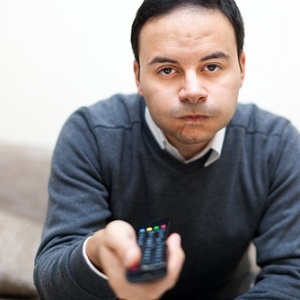
There’s no doubt: too much sitting is bad news in terms of health and longevity. Sitting for more than three hours per day could dramatically decrease your lifespan.
Worldwide, inactivity is the cause of 6% of deaths, and sedentary behaviours like sitting at the office or watching television for a couple of hours a day has been shown to shorten life expectancy at birth by up to two years, according to American research conducted by Dr Peter Katzmarzyk et al., and published on BMJ Open in 2012.
The reality is that an inactive lifestyle can increase your risk for obesity, high blood pressure, coronary heart disease, certain kinds of cancer and type 2 diabetes. What’s more, it’s a global problem that just seems to be getting worse.
“We have an epidemic of sitting, be it commuting, in the workplace, in the home environment or during leisure time,” said internationally acclaimed biokineticist Dr Tracy Kolbe-Alexander at a Health Journalism seminar in 2013.
Over recent decades, environmental opportunities for physical activity have diminished dramatically in areas such as transport, work and home – so much so that, in America, adults now spend an average of 55% of their day engaged in sedentary pursuits.
Bad news for your back
Apart from increasing our risk for life-threatening chronic diseases such as heart disease and type 2 diabetes, too much sitting can cause severe pain, discomfort and bone loss.
The spine is made up of vertebrae, explains Dr Kevin Lentin, a chiropractor based in Cape Town, South Africa. “They sit one on top of the other, and they’re separated by a specialised type of material called the ‘intervertebral disc’.
Each vertebra is connected at the back by a pair of joints that allow for movement and mobility between each of them. Sitting, even with perfect posture, increases the pressure on the disc and joints quite dramatically. While this may not lead to permanent effects, it could result in persistent lower back pain.”
Chiropractor Dr Riaan Pieterse notes that the body also works on a “use it or lose it” principle. Physical activity increases tension on the muscles and ligaments, which in turn increases tension on the bones. The body recognises this and deposits more calcium in the bones, making them stronger. “But the reverse is also true,” cautions Pieterse.
“When we don’t exercise, there’s less tension on the bones and the body uses the calcium in the bones for other areas, thus making the bones brittle and weak, leading to osteoporosis.”
Stay fit while you sit
The bottom line is that, in order to stay healthy for as long as possible, we have to sit less and move more.
Worldwide, experts recommend at least 150 minutes of exercise per week (e.g. walking briskly for 25 minutes on most days of the week). This should remain your aim, but you can also effectively burn kilojoules in other, more subtle ways.
Researchers have been investigating the concept of non-exercise activity thermogenesis (NEAT) for a while and believe it could be part of the solution for those of us who sit for several hours a day because of our work and/or personal circumstances.
In the American Journal of Physiology – Endocrinology and Metabolism (2004), Prof James A. Levine from Mayo Clinic, an international authority on obesity, writes that NEAT is the energy we expend during the course of all activities, with the exception of sleeping, eating and exercising. It therefore refers to the kilojoules you use when you walk to the kitchen, type, make your bed, work in the garden, stretch or just shift around in front of your desk.
When added up, these smaller movements – some of which you can even do while sitting – are associated with considerable energy expenditure, says Prof Levine in the American Journal of Clinical Nutrition (2000). And, of course, the more kilojoules we burn throughout the day, the lower our risk for overweight and obesity, and its associated health risks.
In an article on WebMD.com, Prof Levine recommends 10 minutes of deliberate NEAT per hour.
Not sure how to incorporate NEAT into your day? Here are a few tips:
• Don’t email as much in the office; rather walk across to a colleague to ask a question.
• Instead of staying seated, walk to your boss’ desk if you want to discuss something with him.
• Place your wastepaper basket out of reach so that you need to walk there when you want to throw something away.
• Stand rather than sit in the train or bus (yes, standing burns more kilojoules than sitting).
• Do housework while watching TV: tidy the living room or knit a scarf.
• Make your bed every morning.
• Take phone calls while standing up.
• Tap your feet or lift your heels while working at your desk.
• Wriggle or fidget about while in your chair.
• Stretch in your chair.
• Take the stairs instead of the lift.
• Change your sitting position as often as possible.
- (Hayden Horner)
Sources:
- Dr Riaan Pieterse, Registered Chiropractor
- Dr Kevin Lentin, Registered Chiropractor
www.drkevinlentin.co.za
- Health24, Symptoms Of Back Pain
http://www.health24.com/Medical/Backache/Overview/What-are-the-symptoms-of-back-pain-20130205
- Katzmarzyk PT, Lee IM. Sedentary behavior and life expectancy in the USA: A cause-deleted life table analysis. BMJ Open 2012;2(4):e000828
http://dx.doi.org/10.1136/bmjopen-2012-000828
- Dr Tracy Kolbe-Alexander, South African Medical Journal
http://www.samj.org.za/index.php/samj/article/view/7564/5503#ref-3
- British Journal of Sports Medicine, Television viewing time and reduced life expectancy: A life table analysis
http://dx.doi.org/10.1136/bjsm.2011.085662




 Publications
Publications
 Partners
Partners










